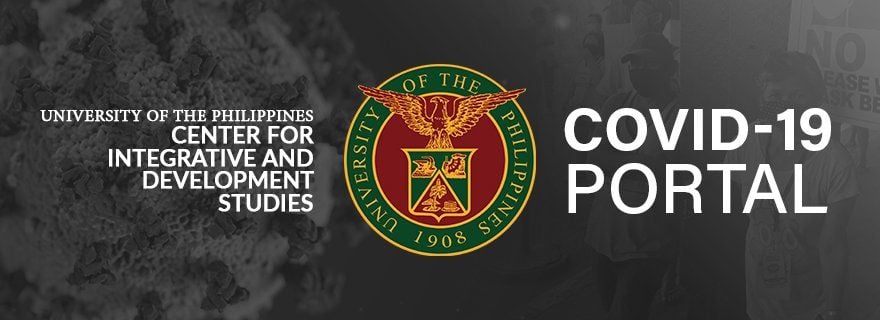
BLOG POST
The Philippines a Year under Lockdown: Continuing Executive Dominance, Threats to Democracy, and Unclear Pandemic Response
28 April 2021
Maria Ela L. Atienza, Ph.D., Co-convenor of the Program on Social and Political Change (PSPC) of the University of the Philippines Center for Integrative and Development Studies (UP CIDS), shared the legal and political issues surrounding the COVID-19 lockdown in the Philippines, one of the world’s longest, in a post in a Germany-based blog.
Dr. Atienza discussed in her post published on April 26 how the Philippines’ executive, legislative, and judicial branches exercised their respective powers in response to increasing of COVID-19 in the country. She particularly noted the implications of the executive’s emergency powers during the pandemic, that “despite the constitutional and other legal safeguards in the exercise of emergency powers, there was greater consolidation of powers in the executive branch and a further weakening of the separation of powers.” The post also discusses regional and local responses to the pandemic and the state of human rights and civil liberties in pandemic-stricken Philippines.
Dr. Atienza ends her blog post with recommendations for governance, democracy, human Rights, and rule of law in the country. According to her, important issues that must be addressed in the context of the persistence of the pandemic in the Philippines are “the need to add more active pressure on the executive branch to be accountable for its actions as regards the pandemic and other issues, more legislators that will use and strengthen Congress’ exercise of its legislative and oversight functions, a more independent Judiciary that would fairly scrutinize all issues brought to it, more civilian oversight over the military and the police, stronger political parties and reforms in the electoral system to increase representation, protecting independent accountability institutions, upholding the rights of citizens and groups, promoting accurate public information and education, and strengthening the spirit of community and active citizenship that has been on display more prominently since the pandemic.”
According to the Verfassungsblog website, it “is an academic and journalistic open access forum of debate on topical events and developments in constitutional law and politics in Germany, the emerging European constitutional space and beyond” and “[i]t sees itself as an interface between the academic expert discourse on the one hand and the political public sphere on the other.” The project is supported by the Center for Global Constitutionalism at the WZB Berlin Social Science Center, the Max Planck Institute for Comparative Public Law and International Law (MPIL) in Heidelberg and the Law in Context research network at the Humboldt University of Berlin.
Read Dr. Atienza’s full post here.
